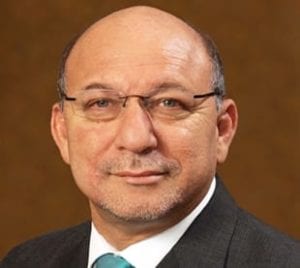African governments must be more committed to conserving their water sources, says co-chair of the Global Ocean Commission, Trevor Manuel.
Addressing the African Development Bank (AfDB) Annual Meeting in Rwanda, Manuel pointed out that there is no official system to provide an international view of how badly oceans have been affected, or a general set of rules to govern their exploitation. He called on African leaders to adopt realistic approaches to against destructive activities such as overfishing and pollution. “Reversing the degradation of oceans is key to the sustainable development of Africa, yet, it is one aspect that is overlooked. As Africans, we must realise that many people depend on water bodies for their daily survival, and we cannot talk of sustainable development unless we tackle these issues,” Manuel said. Due to extreme poverty and corruption in some parts of Africa, governments sell fishing rights to developed countries, which leads to over-exploitation of the resources,” Pascal Lamy, the former Director General of World Trade Organisation explained. He said most of these developed nations use advanced technology to fish, which makes it possible to exploit water resources to irreversible levels. “Lack of commitment to protect the oceans has led to overfishing in many waters that are under African jurisdiction. You can find it everywhere – in Gabon, South Africa, Nigeria and many other countries. This is an issue that all countries have to rise up to,” said Manuel. “I know that many decisions are delayed by bureaucratic tendencies, but my hope is that the plight of Africa’s water bodies gets the awareness they deserve.” AfDB President Donald Kaberuka challenged African countries to stop selling fishing rights to developed countries.
African governments must be more committed to conserving their water sources, says co-chair of the Global Ocean Commission, Trevor Manuel.
Addressing the African Development Bank (AfDB) Annual Meeting in Rwanda, Manuel pointed out that there is no official system to provide an international view of how badly oceans have been affected, or a general set of rules to govern their exploitation. He called on African leaders to adopt realistic approaches to against destructive activities such as overfishing and pollution.
“Reversing the degradation of oceans is key to the sustainable development of Africa, yet, it is one aspect that is overlooked. As Africans, we must realise that many people depend on water bodies for their daily survival, and we cannot talk of sustainable development unless we tackle these issues,” Manuel said.
Due to extreme poverty and corruption in some parts of Africa, governments sell fishing rights to developed countries, which leads to over-exploitation of the resources,” Pascal Lamy, the former Director General of World Trade Organisation explained. He said most of these developed nations use advanced technology to fish, which makes it possible to exploit water resources to irreversible levels.
“Lack of commitment to protect the oceans has led to overfishing in many waters that are under African jurisdiction. You can find it everywhere – in Gabon, South Africa, Nigeria and many other countries. This is an issue that all countries have to rise up to,” said Manuel. “I know that many decisions are delayed by bureaucratic tendencies, but my hope is that the plight of Africa’s water bodies gets the awareness they deserve.”
AfDB President Donald Kaberuka challenged African countries to stop selling fishing rights to developed countries.







